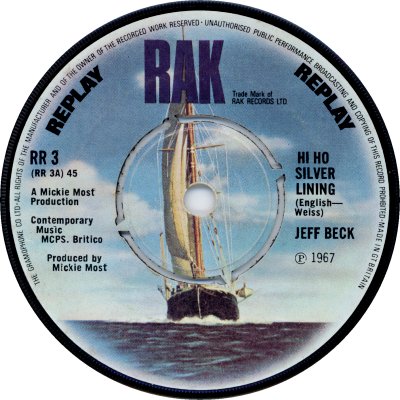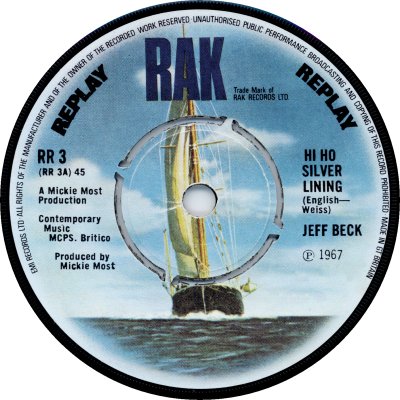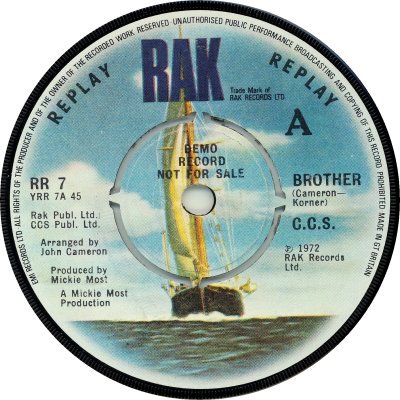


A division of Mickie Most's Rak Records. Rak Replay's imminent arrival was announced in 'Music Week' of the 2nd of September 1972. The article said that its first releases were to be by The Animals, The Yardbirds, Peter Noone and Jeff Beck, but the Yardbirds' record never saw the light of day. At first Rak Replay was an outlet for reissues of some of Most's old hits, but it went on to include a few of his more recent successes, which had come out on its parent label. Initially its releases came in the form of three-track maxi-singles but most of the later issues were two-track. Two of its first three records broke into the Charts: 'House Of The Rising Sun' by The Animals (RR-1; 9/72) and Jeff Beck's 'Hi Ho Silver Lining (RR-3; 1972) both got into the Top 30. Subsequent releases were less well received by the public, though 'House Of The Rising Sun' was a hit yet again in 1982, when, with the same catalogue number, it got to No.11 in the Chart, improving on its 1972 position. RR-5, 'Whole Lotta Love' b/w 'Boom Boom' by CCS, exists in demo form, but according to 'MW' of the 17th of November 1973, the record should have been a straight reissue on Rak to coincide with an anniversary of Top Of The Pops. Thanks to a 'red tape' misunderstanding 2,000 copies were pressed with Rak Replay labels when they ought not to have been, and they were announced to dealers as belonging to the Rak Replay series, which was not the original intention. As a result the single was withdrawn and the release cancelled. Terry Walker, Rak's managing director, was quoted as saying that it might be put out as a Rak Replay in eighteen months or so, but that never happened.
The label design, which was just the Rak label with an appropriate overprint, remained basically unchanged throughout the '70s, though there was a minor change in the perimeter text after the first five issues, when a reference to 'The Gramophone Co.' at 8 o'clock (1) was altered to read 'EMI Records' (2) - a similar change took place on most of the other EMI group labels, including Rak itself, at or around the same time. Re-pressings of the earlier issues also had the changed text. Some of the records can be found with wider white borders on the labels, or with labels which are monochrome silver-on-black or injection moulded; these are even later re-pressings, and they date from the '80s. The '70s records appear to have come in standard Rak company sleeves.



Copyright 2006 Robert Lyons.

